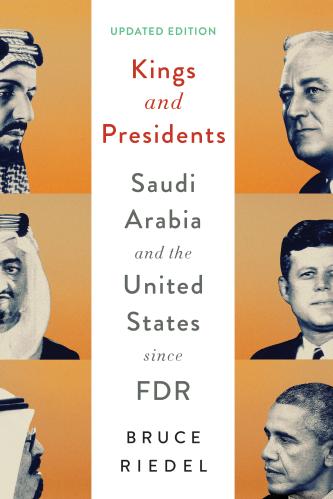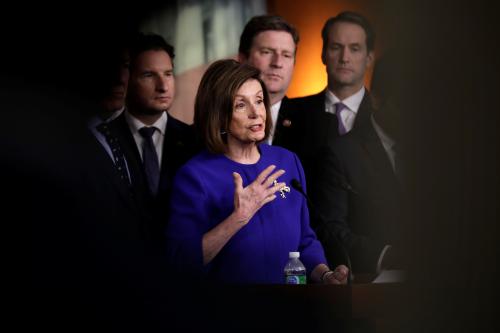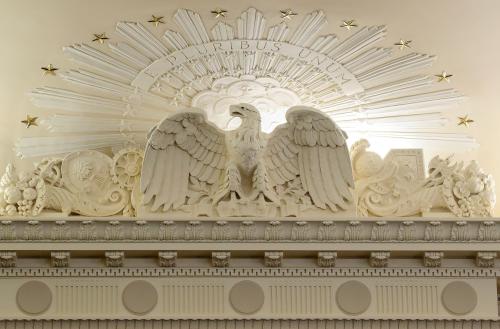The impeachment of a president should be a rare and solemn event. It has enormous implications for those working on the president’s national security policy, among others. I witnessed that up close and directly in the Clinton administration, and what I saw indicates that we could now be facing a very dangerous moment for our country.
I was special assistant to the president and senior director for the Near East and South Asia in the second term of the Clinton administration. National Security Advisor Sandy Berger was my boss, and I had more crisis areas than any other senior director, with constant access to the president.
The night the Monica Lewinsky story broke in the national media, President Bill Clinton was meeting with then-Israeli Prime Minister Benjamin Netanyahu in the Oval Office as a follow-up for the Wye River agreement negotiated in October 1998. I was with the president and went to brief the press spokesperson after the talks. He was alone in his office with the lights out, pondering the implications of the story. Early the next morning, Netanyahu called the president to offer his support, the president hung up on him.
The House of Representatives began debating the articles of impeachment while the administration was pressing the Arab-Israeli peace process and the containment of Saddam Hussein’s Iraq. The president traveled to Jerusalem and Gaza, and on the flight home on Air Force One, Sandy and I finished the preparations for Operation Desert Fox, the most intense use of force against the Iraqi dictator’s power base in the Clinton era. For four days, American and British aircraft bombed the bases of Hussein’s praetorian guard forces, which were also the units involved in trying to thwart United Nations weapons inspectors.
Impeachment was a constant presence. I would be briefing the president on the diplomatic and military situation while his lawyers waited outside the Oval Office to discuss the House proceedings. We were frequently jostling for the president’s attention and time. The media was fascinated with the erroneous idea that the Iraq bombing was a deliberate attempt to distract attention from the impeachment process. It was impossible to fully discredit this falsehood, because some in the media saw it as good copy.
Working in the National Security Council is always a long day’s work. In the middle of an impeachment process, it becomes surreal. Everyone is consumed by the process and it is crucial to compartmentalize the business of protecting the nation abroad from the domestic crisis.
Foreign friends and foes are incapable of separating the two. Saudi Crown Prince Abdullah visited the White House and told the president that the entire Lewinsky affair was a plot by the Israeli secret intelligence service, the Mossad, to destroy his presidency. The president listened politely and changed the subject. The Saudis were appalled that American politics were consumed by what they saw as a private relationship, so they assumed a foreign hand was at work. The Saudi ambassador told me that the Crown Prince’s conspiracy theory was widely believed in the royal family. Saddam Hussein, for his part, blamed Desert Fox on impeachment.
On the eve of the Senate trial of the president, Jordan’s King Hussein passed away after a prolonged battle with cancer. Clinton was a close friend of the monarch, who had been a key player in the Arab-Israeli negotiations (including, of course, Jordan’s own peace treaty with Israel) and in isolating Hussein, especially after the defection of two of his senior lieutenants. So the president immediately decided to go to Amman for the funeral on February 8, 1999. The Senate trial began on February 9.
Although the funeral was a sad event, it was the kind of engagement Clinton treasured. He could interact with dozens of foreign leaders in an unscripted day. Hussein’s funeral attracted officials from 75 countries, including dozens of heads of state and monarchs. The American delegation had four presidents. The Israelis were the largest delegation. Hussein’s deputy attended. It was also a useful day for the administration to demonstrate it was not preoccupied with the Senate debate.
Impeachment was undoubtedly a factor in Clinton’s determination to pursue the Arab-Israel peace process with single-minded determination in his last year in office. He was eager to improve his legacy by throwing himself personally into the negotiations, first with Syria and then with the Palestinians. Despite enormous efforts, the negotiations all failed and Clinton’s term ended with a disastrous Palestinian intifada — not the legacy he had hoped for.
The impeachment proceedings of the 45th president will be most closely watched by Saudi Arabia, because it has placed so much of its interests in the Trump bandwagon. The Saudis are deeply dependent on his staying in office. If impeachment leads to a Democrat winning a year from now, it will lead to an existential crisis in the relationship, as I have argued elsewhere. It would also open the door possibly to a renewal of America’s relationship with the Palestinian Authority.






Commentary
An up-close look at what impeachment proceedings can mean for foreign policy
December 13, 2019